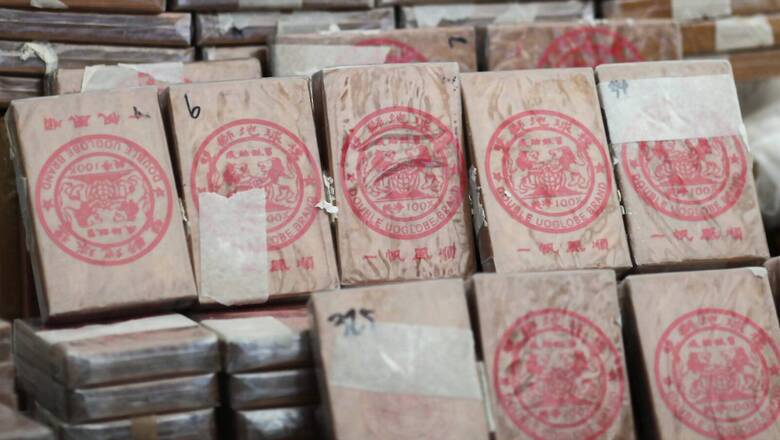
views
Noticing a big spike in smuggling of drugs from African countries following Covid-19 outbreak, Indian agencies suspect that the period of the pandemic was used by kingpins to revive illegal laboratories to manufacture expensive narcotics like heroin and cocaine. The Narcotics Control Bureau (NCB) has reached out to representatives of African nations in India, expecting action to be pursued in their home countries.
Data compiled by the NCB which triggered the alarm says that in 2017, 2018 and 2019, almost no heroin seizures were recorded from South Africa, but in 2020, when the pandemic hit all nations, close to 10kg heroin trafficked from South Africa was seized in India. This number saw a bigger jump in 2021, crossing 51kg.
Sources say top NCB officials suspect that illegal laboratories are in operation again and grew their business and base during the pandemic.
“There has been a massive jump, which in percentage is more than 50,000%, in heroin smuggling to India from South Africa. We have escalated the issue to concerned foreign authorities and told them about this new trend. It is suspected that illegal drug manufacturing laboratories have been growing again in various countries, which is also reflected in the latest World Drug Report,” a senior NCB official said.
The NCB has done an analysis based on the World Drug Report, which says that “a number of other African countries may have also been involved in the manufacture of the drugs including Mozambique, the United Republic of Tanzania, the Democratic Republic of the Congo, Benin and other countries in West and Central Africa were mentioned as countries of origin of methamphetamine in the region.”
“Ghana was one of the most-commonly reported departure countries for methamphetamine shipments seized in Africa. While no laboratories were reported dismantled in Ghana or in the other African countries identified as departure countries, it is possible that manufacturing is expanding outside of Nigeria and South Africa,” it added.
Explaining the modus operandi, the NCB official quoted above said, “Their couriers, who are foreigners, get Rs 15,000-20,000 per visit with full accommodation and flight charges. They carry small but expensive drugs procured from smugglers who get them from these labs. They stay in India for a few days and leave after handing over to their Indian supplier. They carry drugs worth crores of rupees in one transfer. This trend has seen a whopping rise during pandemic, hinting at massive production in various countries.”
NCB officials say the laboratories are producing drugs in different forms, making them easy to supply.
According to a report published in VICE this month, gangs in Durban are operating out of high-tech underground drug labs where they are producing more pills in lesser time.
“Drug gangs in Durban, a city on the country’s east coast, have moved to selling cheap heroin packed into capsules using underground drug labs where automated pharmaceutical capping machines can spit out up to 25,000 pills an hour. The pharmaceutical-style capsules, known on the street as “caps” are sold for around 35p each, cheaper than a loaf of bread in Durban,” the report said.
According to the latest World Drug Report, which was also a talking point during the meeting of NCB officials, drug markets have swiftly resumed operations after the initial disruption at the onset of the pandemic.
“A burst that has triggered or accelerated certain pre-existing trafficking dynamics across the global drug market. Among these are increasingly larger shipments of illicit drugs, a rise in the frequency of overland and water-way routes used for trafficking, greater use of private planes for the purpose of drug trafficking, and an upsurge in the use of contactless methods to deliver drugs to end-consumers,” the report said.
“The resilience of drug markets during the pandemic has demonstrated once again traffickers’ ability to adapt quickly to changed environments and circumstances,” it added.
On drugs supply and demand trends, the report said that mobility restrictions due to the pandemic have led to expansion of illegal drug manufacturing infrastructure in various countries.
“Possibly as a response to Covid-19-related mobility restrictions, organised crime groups appear to have expanded the area of methamphetamine manufacture to include Cambodia, where at least five clandestine synthetic drug laboratories were seized in 2020, whereas no synthetic drug manufacturing sites had been seized between 2015 and 2018,” the World Drug Report said.
Read all the Latest News India and Breaking News here




















Comments
0 comment